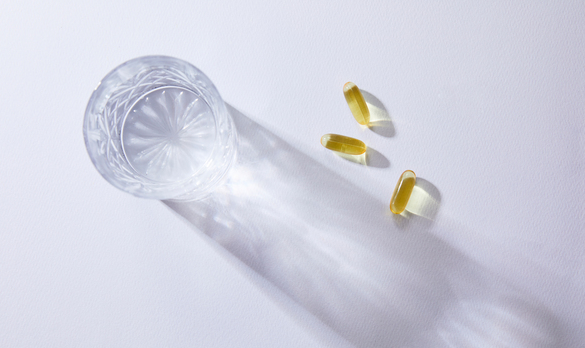
The most decisive reason why vitamin D has become so important today is that it has the effect of boosting immunity. Recently, studies have shown that vitamin D is involved in the prevention of various cancers and helps fight infectious diseases such as colds and flu. That's why vitamin D is called an immune vitamin or an anti-cancer vitamin. Curiously, various white blood cells responsible for immunity have vitamin D receptors that accept vitamin D from the body. And through vitamin D, white blood cells make immune proteins that can inhibit inflammatory substances in the body and kill viruses and bacteria. In addition, vitamin D promotes cell differentiation to prevent cells that remain immature from becoming cancer cells. It also plays a role in inducing the phenomenon of cell suicide so that old and diseased cells die on their own.
There's plenty of other evidence to support vitamin D's health. Let's take a look at type 1 diabetes in children. Type 1 diabetes is 400 times more prevalent in high-latitude Finland with less sunshine than in low-latitude Venezuela. In Finland, more than 10,000 newborns were given vitamin D shortly after birth and found a 90% reduction in the incidence of type 1 diabetes compared to newborns who did not take vitamin D. The immunomodulatory action of vitamin D appears to help prevent the autoimmune disease of type 1 diabetes.
The same goes for respiratory infections such as the flu. The flu is common in the winter, and there have been reports that children with rickets and adults with low levels of vitamin D in their blood are more likely to catch colds. There was a randomized clinical study in Japan on the benefits of vitamin D. In a study of 167 children who were given 1,200 IU of vitamin D for 4 months and a placebo to 167 controls, the vitamin D group had a 42% reduction in influenza (Am J of Clin Nutr, 2010). This means that there was a scientific basis for the elderly saying that the more they burn their children in the midsummer sun, the less likely they are to catch a cold in winter. Other studies have shown that vitamin D reduces heart attacks by nearly twofold, vitamin D deficiency leads to dementia, and vitamin D preparations reduce the likelihood of miscarriage.
Vitamin D has an effect on various diseases as well as a reduction in mortality. In a meta-analysis of 18 randomized clinical studies involving more than 60,000 subjects, participants who took vitamin D preparations at a dose of 400~800 IU daily for an average of 5 years reduced total mortality by 7% (Arch Intern Med, 2007). According to the results of a meta-analysis by the Harvard T.H. Chan School of Public Health, when vitamin D preparations were taken for 2~7 years, the cancer mortality rate was reduced by 12%. Given that mortality is the hardest health indicator to move, The fact that vitamin D as a food, not a drug, reduced mortality means that vitamin D has powerful health benefits in all aspects.
The anti-cancer properties of vitamin D were first discovered in the 1980s when studies showed that colon cancer was more prevalent in people living in high-latitude regions. The higher the latitude, the less sunlight there is, which makes it easier to lack vitamin D, which leads to the occurrence of various cancers such as colon cancer, breast cancer, and prostate cancer. Since then, many studies have begun to show the cancer-preventing effects of vitamin D. Studies have shown that it reduces the risk of developing cancer (cancer incidence) as well as dying from cancer (cancer mortality). Colorectal cancer, in particular, was inversely associated with vitamin D blood levels. A two-fold lack of vitamin D is associated with twice as many colon cancers, and so on. This strongly suggests that vitamin D and colorectal cancer are not just statistically related, but causal.



![[Vitamin D Episode 3] How Much Vitamin D Should You Take? | Dr. Esther Yeo](http://esther-mall.com/cdn/shop/articles/48_1eff4f00-eade-4a65-88e7-535ee268a33f.jpg?v=1734116775&width=480)
